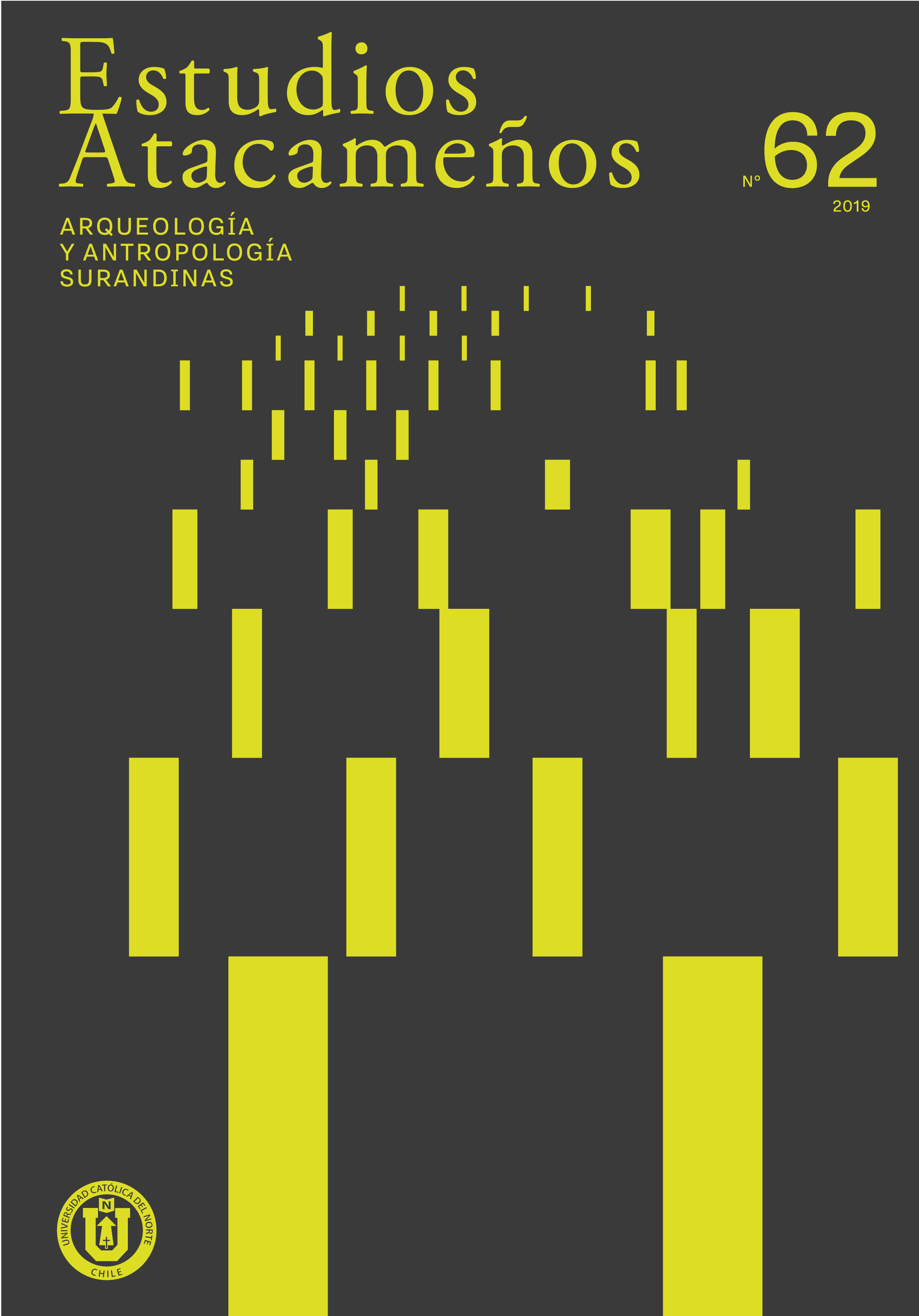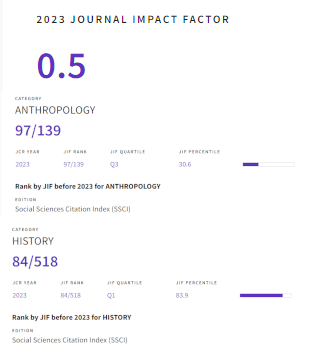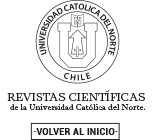Governmentality and somatocracy in the Regime of Explicit Health Guarantees in Chile
DOI:
https://doi.org/10.22199/issn.0718-1043-2019-0009Keywords:
Explicit Guarantees in Health, evidence-based medicine, governmentality, biopolitics, somatocracyAbstract
Among the different technologies of neoliberal government emerging during the XX and XXI centuries, those that have attracted greater attention and reflection probably refer to those related to the processes of life, and the conception of it as a field for politics. This paper addresses the neoliberal governmental rationality involved in the development of the last major health reform in Chile: the Regime of Explicit Health Guarantees (GES), considering the implications of their epistemic aspects in understanding of corporeality. We consider as material for analysis several accounts of experts who have participated in the design of the regime, professionals involved in its implementation, legal and technical documents, and ethnographic observations. We analyse such information considering the notion of enactment proposed by Annemarie Mol. Results expose the processes of epistemic ordering, biopolitical acceleration, and biocitizenship prescription, linked to the enactment of the body as an assemblage of different spaces of government. We call such process as somatocracy, using the notion created by Michel Foucault. We conclude by integrating some components to think biocitizenship from emerging aspects in the work.
Downloads
References
Álvarez, P. L. (2010). Biopolítica, liberalismo y neoliberalismo: acción política y gestión de la vida en el último Foucault. En Arribas, S., Cano, G. y Ugarte, J. (Coords.). El “exilio” uruguayo en Argentina: Intersecciones entre memoria, ciudadanía y democracia (pp. 39-61). Madrid: CSIC/La Catarata.
Austin, J. L. (1975). How to Do Things with Words (2da ed.). Cambridge, MA: Harvard University Press.
Banco Mundial (1993). Informe sobre el Desarrollo Mundial 1993. Invertir en Salud. Washington, DC: Banco Mundial.
Blackman, L. (2008). The Body: The Key Concepts. New York, NY: Berg.
Brekke, O. A. y Sirnes, T. (2011). Biosociality, biocitizenship and the new regime of hope and despair: Interpreting “portraits of Hope” and the “mehmet Case”. New Genetics and Society, 30(4), 347-374.
Cambrosio, A., Keating, P. y Bourret, P. (2006a). Regulatory objectivity and tests systems in medicine: The case of cancerology. Convergencia, Septiembre-Diciembre, 42, 121-139.
Cambrosio, A., Keating, P., Schlich, T. y Weisz, G. (2006b). Regulatory objectivity and the generation and management of evidence in medicine. Social Science and Medicine, 63(1), 189-199. http://doi.org/10.1016/j.socscimed.2005.12.007
Cambrosio, A., Keating, P., Schlich, T. y Weisz, G. (2009). Biomedical Conventions and Regulatory Objectivity: A Few Introductory Remarks. Social Studies of Science, 39(5), 651-664. http://doi.org/10.1177/0306312709334640
Castillo-Sepúlveda, J. (2015). Identidad y equipamiento en colectivos biosociales: una lectura semiótico-material. Summa Psicológica, 12(1), 51-61.
Castillo-Sepúlveda, J. (en revisión). Biogubernamentalidad: regímenes de subjetivación, corporización y biosocialidad en las Garantías Explícitas en Salud (GES). Aproximación a los repertorios expertos. En Biopolítica, Biociencia y Gubernamentalidad (pp. 1-16).
Castro-Gómez, S. (2010). Historia de la gubernamentalidad: Razón de Estado, liberalismo y neoliberalismo en Michel Foucault. Bogotá: Siglo del Hombre Editores.
Chalfen, R. y Rich, M. (2007). Combining the applied, the visual and the medical. En Pink, S. (Ed.). Visual Interventions: Applied Visual Anthropology (pp. 53-70). New York, NY: Berghahn Books.
Charles, N. (2013). Mobilizing the self-governance of pre-damaged bodies: neoliberal biological citizenship and HPV vaccination promotion in Canada. Citizenship Studies, 17(6-7), 741-755. http://doi.org/10.1080/13621025.2013.834128
Claridge, J. A. y Fabian, T. C. (2005). History and development of evidence-based medicine. World J Surg, 29(5), 547–553. http://doi.org/10.1007/s00268-005-7910-1
Cooter, R. (2008). Biocitizenship. The Lancet, 372(9651), 1725.
Decreto 45. Aprueba normas de carácter técnico médico y administrativo para el cumplimiento de las garantías explícitas en salud de la Ley 19.966, Biblioteca del Congreso Nacional de Chile, Santiago, Chile, 26 de Junio de 2015.
Drago, M. (2006). La reforma al sistema de salud chileno desde la perspectiva de los derechos humanos. Santiago: CEPAL.
Erazo, A. (2011). La protección social en Chile. El Plan AUGE: Avances y desafíos. Santiago: CEPAL.
Foucault, M. (1968). La función política del intelectual. Respuesta a una cuestión. Revista ESPRIT, 371, 850-874.
Foucault, M. (1976). La crisis de la medicina o la crisis de la antimedicina. Educación Médica y Salud, 10(2), 152-170.
Foucault, M. (1978). El nacimiento de la clínica. Buenos Aires: Siglo XXI.
Foucault, M. (2002). Defender la sociedad. Buenos Aires: Fondo de Cultura Económica.
Foucault, M. (2006). Seguridad, Territorio, Población. Buenos Aires: Fondo de Cultura Económica.
Foucault, M. (2007a). Historia de la Sexualidad. La Voluntad de Saber. Buenos Aires: Siglo XXI Editores.
Foucault, M. (2007b). Nacimiento de la biopolítica. Buenos Aires: Fondo de Cultura Económica.
Foucault, M. (2008). Tecnologías del yo y otros textos afines. Barcelona: Ediciones Paidós Ibérica.
Fraser, M. y Greco, M. (2005). The Body. New York, NY: Routledge.
Gobierno de Chile (2008). Estudio de Carga de Enfermedad y Carga Atribuible. Santiago: Ministerio de Salud.
Gobierno de Chile (2016). SIGGES. Recuperado de http://www.sigges.cl/
Gottweis, H. (2008). Participation and the New Governance of Life. BioSocieties, 3(3), 265-286. http://doi.org/10.1017/S1745855208006194
Hadders, H. (2009). Medical practice, procedure manuals and the standardisation of hospital death. Nursing Inquiry, 16(1), 22–32.
Haesbaert, R. (2004). O mito da desterritorializaçao: do “fim dos territórios” á multiterritiralidade. Río de Janeiro: Bertrand Brasil.
Hall, E. (2004). Spaces and networks of genetic knowledge making: the “geneticisation” of heart disease. Health and Place, 10(4), 311-318.
Han, C. (2012). Life in Debt. Los Angeles, CA: University of California Press.
Haraway, D. J. (1991). Simians, Cyborgs, and Women: The Reinvention of Nature. Londres: Free Association Books.
Knoblauch, H. (2005). Focused Ethnography. Forum: Qualitative Social Research, 6(3), 1-14.
Larrañaga, O. (2010). Las nuevas políticas de protección social en perspectiva histórica. Santiago: PNUD.
Larrañaga, O. y Contreras, D. (2015). Las nuevas políticas de protección social en Chile. Santiago: Uqbar Editores.
Latour, B. (2008). Reensamblar lo social: una introducción a la teoría del actor-red. Buenos Aires: Manantial.
Law, J. (1999). After ANT: complexity, naming and topology. En Law, J y Hassard, J. (Eds.). Actor Network Theory and After (pp. 1-14). Oxford: Blackwell Publishing.
Law, J. (2005). Object Lessons. Organization, 12(3), 331-355. http://doi.org/10.1177/1350508405051270
Law, J. y Hassard, J. (1999). Actor Network Theory and After. Oxford: Blackwell Publishing.
Law, J. y Mol, A. (2008). El actor-actuado: La oveja de la Cumbria en 2001. Política y Sociedad, 45(3), 75-92.
Leal Ferreira, A. (2011). ¿Con cuántos dispositivos se produce una subjetividad? Athenea Digital. Revista de Pensamiento e Investigación Social, 11(1), 195-201.
Le Breton, D. (2002). Antropología del cuerpo y modernidad. Buenos Aires: Ediciones Nueva Visión.
Lemm, V. (2010). Michel Foucault: neoliberalismo y biopolítica. Santiago: Ediciones Universidad Diego Portales.
Lenz, R. (2007). Proceso político de la reforma auge de salud en Chile: algunas lecciones para América Latina. Una mirada desde la Economía Política. Santiago: CIEPLAN.
Ley 19.966. Establece un Régimen de Garantías en Salud, leychile.cl Biblioteca del Congreso Nacional de Chile, Santiago, Chile, 3 de Septiembre de (2004).
Lynch, M. (2002). Protocols, practices, and the reproduction of technique in molecular biology. British Journal of Sociology, 53(2), 203-220. http://doi.org/10.1080/00071310220133304
Manterola, C. y Zavando, D. (2009). Cómo interpretar los “Niveles de Evidencia” en los diferentes escenarios clínicos. Revista Chilena de Cirugía, 61(6), 582-595. http://doi.org/10.4067/S0718-40262009000600017
Michael, M. y Rosengarten, M. (2012). Medicine: Experimentation, Politics, Emergent Bodies. Body and Society, 18(3-4), 1-17. http://doi.org/10.1177/1357034X12451860
Ministerio de Salud (2010). Endoprótesis total de cadera en personas de 65 y más años con artrosis de cadera con limitación funcional severa. Santiago: Superintendencia de Salud.
Ministerio de Salud (2016). Garantías Explícitas en Salud AUGE-GES. Recuperado de http://www.supersalud.gob.cl/difusion/665/w3-propertyvalue-3130.html
Mol, A. (2002). The Body Multiple: Ontology in Medical Practice. Durham, NC: Duke University Press Books.
Moreira, T., May, C. y Bond, J. (2009). Regulatory Objectivity in Action: Mild Cognitive Impairment and the Collective Production of Uncertainty. Social Studies of Science, 39(5), 665-690. http://doi.org/10.1177/0306312709103481
Novas, C. y Rose, N. (2000). Genetic risk and the birth of the somatic individual. Economy and Society, 29(4), 485-513. http://doi.org/10.1080/03085140050174750
Olavarría Gambi, M. (2012). ¿Cómo se formulan las políticas públicas en Chile? El Plan AUGE y la reforma de la Salud (Vol. 2). Santiago: Editorial Universitaria.
Ong, A. y Collier, S. J. (2005). Global Assemblages. Oxford: Blackwell Publishing.
Orsini, M. (2006). Illness Identities and Biological Citizenship: Reading the Illness Narratives of Hepatitis C Patients. Presentado en Annual Meeting of the Canadian Political Science. University of York, Toronto, Canadá.
Oyarzo, C. (2007). Reforma de la Salud: los Problemas de un Proceso en Marcha. En Institucionalidad para el Desarrollo: los nuevos desafíos (pp. 71-74). Santiago: CEP – Expansiva.
Paraje, G. e Infante, A. (2015). La Reforma AUGE 10 Años Después. Santiago: PNUD.
Perdomo, A. (2007). Hegemonía neoliberal y matriz socio política: el caso de la reforma a la salud en Chile. Revista de Gerencia y Salud, 6(12), 83-110.
Pressacco, C. F. y Salvat, P. (2012). Consideraciones críticas sobre política pública y social de los gobiernos Concertación: Chile, 1990-2010. ¿Del crecimiento con equidad al crecimiento basado en la competencia y el subsidiarismo generalizado? Papel Político, 17(1), 85-118.
Quiero, K. (2005). Los imaginarios sociales de la reforma de la salud en Chile (1990-2003). Revista Mad, 12, 1-18.
Rabinow, P. (2005). Artificiality and Enlightenment: From Sociobiology to Biosociality. En Anthropologies of Modernity (pp. 179-193). Oxford: Blackwell Publishing Ltd.
Rabinow, P. y Rose, N. (2006). Biopower Today. BioSocieties, 1(2), 195-217. http://doi.org/10.1017/S1745855206040014
Read, J. (2009). A Genealogy of Homo-Economicus: Neoliberalism and the Production of Subjectivity. Foucault Studies, 6, 25-36.
Rhodes, T., Harris, M. y Martin, A. (2013). Negotiating access to medical treatment and the making of patient citizenship: the case of hepatitis C treatment. Sociology of Health and Illness, 35(7), 1023-1044. http://doi.org/10.1111/1467-9566.12018
Rose, N. (2001). The Politics of Life Itself. Theory, Culture & Society, 18(6), 1-30. http://doi.org/10.1177/02632760122052020
Rose, N. (2006). Biological Citizens. En The Politics of Life Itself: Biomedicine, Power, and Subjectivity in the Twenty-First Century (pp. 131-154). Princeton, NJ: Princeton University Press.
Rose, N. (2007). The Politics of Life Itself. Princeton: Princeton University Press.
Rose, N. (2008). The value of life: somatic ethics & the spirit of biocapital. Daedalus, 137(1), 36-48. http://doi.org/10.1162/daed.2008.137.1.36
Rose, N. (2012). Políticas de la vida. Biomedicina, poder y subjetividad en el siglo XXI. La Plata: UNIPE – Editorial Universitaria.
Rose, N. y Novas, C. (2005). Biological Citizenship. En Global Assemblages (pp. 439-463). Oxford: Blackwell Publishing.
Searle, J., Kiefer, F. y Bierwisch, M. (1980). Speech Act Theory and Pragmatics. Londres: Springer.
Simons, H. (2011). El estudio de caso: Teoría y práctica. Madrid: Ediciones Morata.
Steger, M. B. y Roy, R. K. (2011). Neoliberalismo. Madrid: Alianza Editorial.
Subsecretaría de Salud Pública (2014). Manual Metodológico. Desarrollo de Guías de Práctica Clínica. Santiago: Ministerio de Salud.
Tapia, J., Espejo, M. y Castillo-Sepúlveda, J. (2017). La verdad es una actividad: El proceso aletúrgico en el abordaje de enfermedades GES. Presentado en IV Encuentro CTS-Chile. Valdivia, Chile.
Timmermans, S. y Berg, M. (1997). Standardization in Action: Achieving Local Universality through Medical Protocols. Social Studies of Science, 27(2), 273-305. http://doi.org/10.1177/030631297027002003
Tirado, F. J. (2010). Teoría del actor-red y biopolítica. Presentado en I Encuentro Estatal ANT. Barcelona, España.
Tirado, F. J. y Castillo-Sepúlveda, J. (2011). Oncoguías-ontoguías: protocolos, panoramas y prehensión en el tratamiento del cáncer. Athenea Digital. Revista de Pensamiento e Investigación Social, 11(1), 129-153.
Tirado, F. J., Baleriola, E., Giordani, T. y Torrejón, P. (2014). Subjetividad y subjetivadores en las tecnologías de bioseguridad de la Unión Europea. Revista Polis e Psique, 4(3), 23-50.
Tirado, F. J., Gálvez, A. y Castillo-Sepúlveda, J. (2013). Movimiento y regímenes de vitalidad. La nueva organización de la vida en la biomedicina. Política y Sociedad, 49(3), 571-590. http://doi.org/10.5209/rev_POSO.2012.v49.n3.38545
Tocci, N. (2011, November 17). El cuerpo humano como huella de vida ausente, desde una perspectiva axiológica (Tesis doctoral, Universidad de Carabobo Carabobo, Venezuela). Recuperado de http://mriuc.bc.uc.edu.ve/bitstream/handle/123456789/734/ntocci.pdf?sequence=1
Downloads
Published
Issue
Section
License

All works published in Revista Estudios Atacameños (ISSN on line:0718-1043) Revista Estudios Atacameños Creative Commons International 4.0 attribution (CC BY 4.0) licence.
Authors remain the owners of their work and may republish their articles elsewhere without having to request permission, as long as they indicate that the work was originally published in Revista Estudios Atacameños (ISSN on liine:0718-1043).












